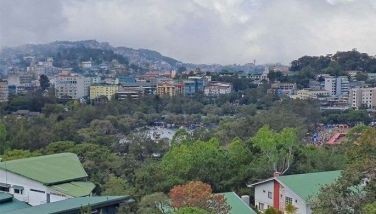PCG to tap college students in search and rescue operations
MANILA, Philippines - The Philippine Coast Guard (PCG) has tapped college students to help in the conduct of search and rescue (SAR) missions.
The PCG yesterday said that while it is always ready to respond to calls of distress, there would be circumstances that could delay the arrival of their rescue teams.
The PCG added that the public should not solely depend on the government for rescue operations and instead, they should also know how to act properly and save themselves from disasters.
“Considering the problems caused by climate change, the direction of the policy-makers is to equip the people, such as the students, with the basic skill on how to respond to events such as heavy flooding in their area and how to protect the environment during an oil spill,†PCG spokesman Commander Armand Balilo said.
For the past few years, the PCG has been giving short training courses to students and government personnel, but this is the first time that the Commission on Higher Education (CHED) has formally included in its National Service Training Program (NSTP) for college students basic search and rescue techniques and maritime environmental protection.
Beginning this school year, four of their modules would be incorporated in the NSTP program offered in various schools.
The Mindanao Institute of Technology was the first school to include the PCG-Civil Welfare Training Service (CWTS) in its program.
Meanwhile, the PCG is working on its memorandum of agreement with the Maritime Polytechnic Colleges Foundation in Bicol and the VMA Global College in Iloilo.
Twenty-three other schools have pledged to include the PCG modules in their NSTP.
“The instruction of PCG commandant Vice Admiral Rodolfo Isorena is that we should maximize the use of the NSTP, so all our district commanders are coordinating with the schools in their respective jurisdictions to convince them to include our modules in their programs,†Balilo said.
The first PCG-CWTS module is Disaster Risk Reduction and Management Awareness, wherein students would be given an overview of the country’s geography and disaster risk profiles and the disaster management system.
Students would also learn about maritime search and rescue, the stages and phases of SAR operations, and water SAR.
In the second module, students would be taught about maritime environment protection, hazardous wastes, marine pollution and the National Oil Spill Contingency Plan.
The third module covers discussions on the history, functions and leadership of the PCG, while the fourth module is all about community service including coastal clean-up, mangrove planting, tsunami preparedness response, oil spill clean up demo and on-the-spot response using improvised oil spill equipment.
The first three modules would only take seven hours each, while the last module would last for 32 hours.
The PCG has selected 48 of its personnel to become instructors. They are currently being trained by the agency’s elite rescue team – the special operations group and the maritime environment protection unit.
- Latest
- Trending






























